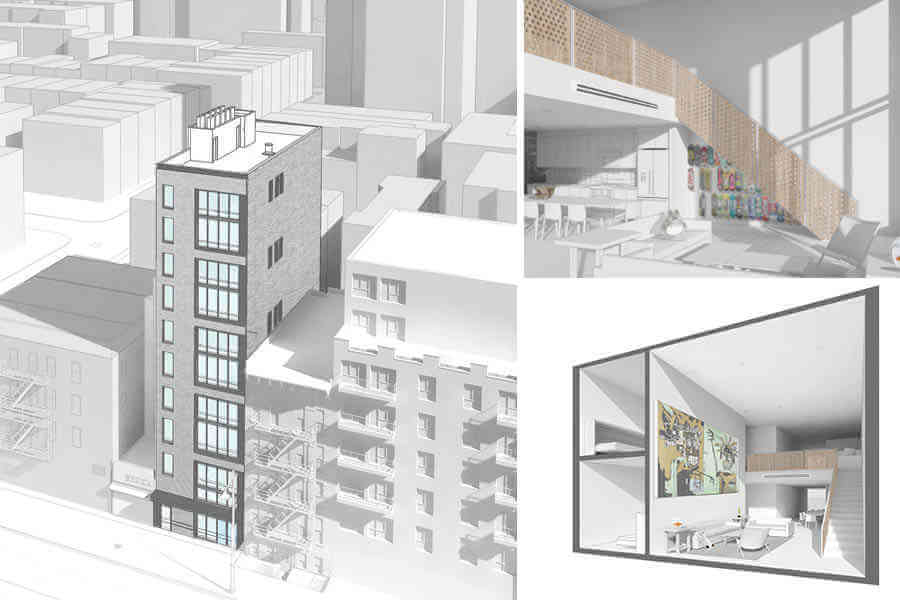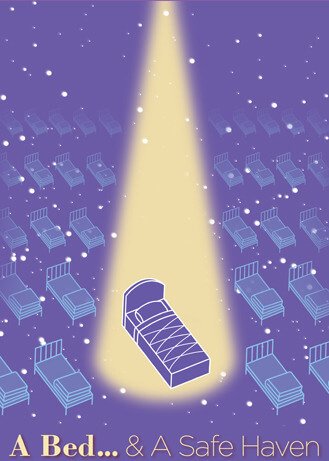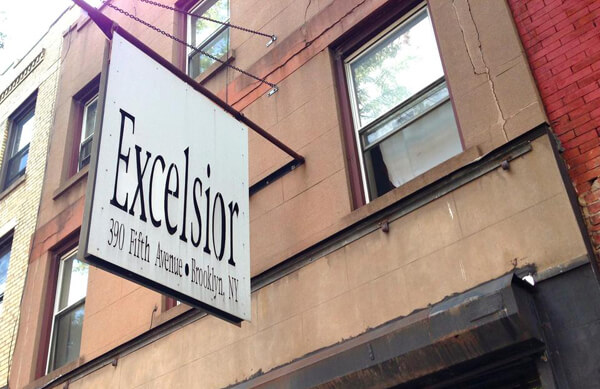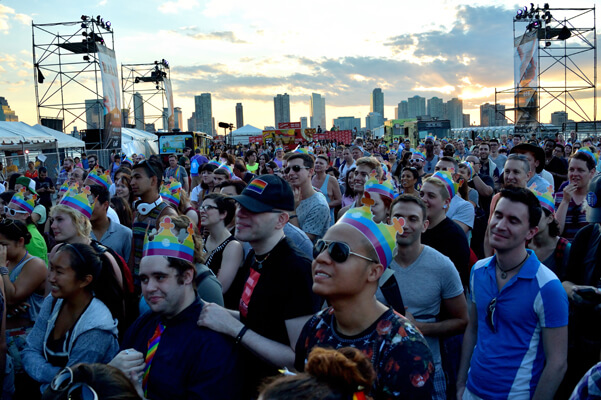The Ali Forney Center, which provides housing and other services to homeless LGBTQ youth, is working on a new development in East Harlem that will offer shared housing for up to 36 people.
The planned housing development at 244 East 106th Street near Second Avenue is slated to be 10 stories tall and include on-site mental health-related supportive services, substance abuse programs, life skills training, career development, and other offerings geared toward helping residents establish their independence, according to Alexander Roque, director of development for the Ali Forney Center.
Ali Forney is carrying out the project in conjunction with Ascendant Neighborhood Development, an affordable housing developer based in Harlem. The project was one of three proposals selected by the city for the Department of Housing Preservation and Development’s ShareNYC program geared toward expanding co-living housing developments in the city.
The development is not restricted to LGBTQ folks, but the Ali Forney Center confirmed that LGBTQ-affirming cultural competency would be integral to the building’s operation and services.
The housing development will feature four furnished duplex units where residents would have their own single bedrooms, but share kitchens, bathrooms, and living spaces with others.
“The units are designed to encourage a sense of community and create a home-like environment,” Roque said.
All 10 floors are intended to have dedicated programming and communal spaces. There will be locations for folks to do homework, carry out other work, and do laundry, among other activities. Residents will also receive financial literacy advice such as how to open and manage a bank account.
Those who live there would pay rent on a sliding scale based on their income and utilities will be included. While the Ali Forney Center serves clients between the ages of 16 and 24, this housing development will not have an age limit.
The project is still in early stages and Roque would not confirm an exact timeline for the building’s development, but said his team anticipates it would take about five years until it is complete. Funding details surrounding the development are not immediately clear; the Ali Forney Center said the city’s Department of Housing Preservation and Development is leading the financing efforts.
Among a wide array of services, Ali Forney currently provides homeless youth with 58 transitional housing beds in shared apartments in locations in Manhattan and Brooklyn, and has six emergency housing sites in Queens and Brooklyn that have a total of 66 beds. The group’s website notes that the number of LGBTQ youth in need of shelter in New York City means that its waiting list for emergency beds is sometimes as high as 200.





































